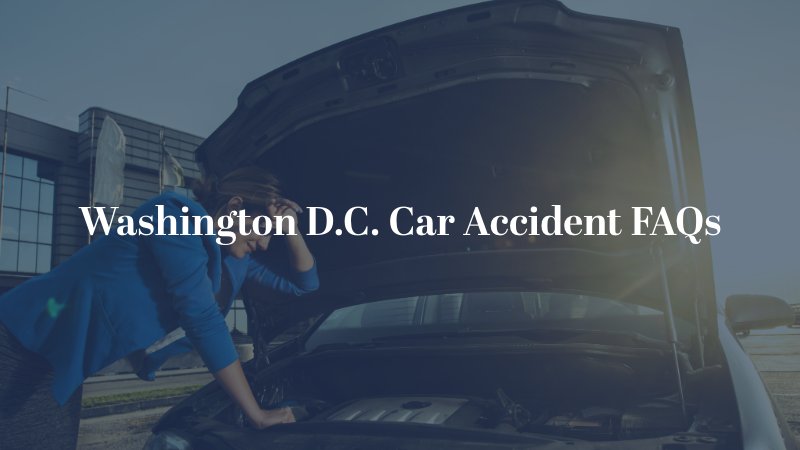
Car accidents in Washington D.C. are an unfortunate yet common occurrence, often resulting in significant property damage, personal injury, or even fatalities. Navigating the aftermath of a car accident can be overwhelming, especially when trying to understand the legal implications and your rights. The following are some of the most frequently asked questions regarding car accidents and personal injury claims.
What Should I Do Immediately After a Car Accident?
Immediately after a car accident, call the police to report the accident, exchange contact and insurance details with the other driver, and take photos of the scene, including vehicle damage and any relevant road conditions. Seek medical attention as soon as possible, even if injuries are not immediately apparent, as some symptoms may develop later.
When Should I Contact a Personal Injury Lawyer After a Car Accident?
Contact a Washington D.C. personal injury lawyer if you sustain serious injuries, if fault is disputed, or if you encounter resistance from the insurance company. Legal representation is essential to protect your rights and help maximize compensation, particularly in complex cases or when facing uncooperative insurers.
What is Contributory Negligence and How Does it Affect My Claim?
Contributory negligence is a legal doctrine that plays a critical role in personal injury claims in Washington D.C. Under this rule, injured parties found to be even 1% at fault for the accident, you may be completely barred from obtaining any compensation for your injuries and damages. This rule makes it critical to have solid evidence and legal representation to contest any claims of fault.
However, an exception exists for vulnerable road users, such as pedestrians and cyclists, who are subject to a more lenient standard known as moderate comparative negligence.
- 50–2204.52. Contributory negligence limitation.
(a) Unless the plaintiff’s negligence is a proximate cause of the plaintiff’s injury and greater than the aggregated total negligence of all the defendants that proximately caused the plaintiff’s injury, the negligence of the following shall not bar the plaintiff’s recovery in any civil action in which the plaintiff is one of the following:
(1) A pedestrian or vulnerable user of a public highway or sidewalk involved in a collision with a motor vehicle or another vulnerable user
Under this standard, compensation may still be recoverable for the injured vulnerable road user even if some fault is attributed to them – no more than 50%.
What Compensation Can I Receive After a Car Accident?
After a car accident, you may be entitled to various forms of compensation, including medical expenses, lost wages, and pain and suffering. Additionally, if your vehicle was damaged, you can claim repair or replacement costs. Each case is unique, and the specific compensation will depend on the severity of your injuries, the impact on your daily life, and the available insurance coverage.
What if the Other Driver is Uninsured or Underinsured?
If the other driver involved in your accident is uninsured or underinsured, you may still have options for compensation through your own insurance policy. Uninsured or underinsured motorist coverage can help cover your medical expenses, lost wages, and other damages. You may also be able to file a personal injury lawsuit against the uninsured driver to seek compensation for your injuries.
How Can a Lawyer Help with My Car Accident Case?
A lawyer can provide valuable assistance after a car accident, including investigating the accident and negotiating with insurance companies. If necessary, your lawyer will also represent you in court. They can also help ensure that you receive fair compensation for your injuries and damages. It is always best to consult with a reputable Washington D.C. car accident attorney who can provide guidance regarding your situation.
For help, don’t hesitate to contact us today to schedule a free consultation.